-
Content count
11,323 -
Joined
-
Last visited
-
Days Won
288
About Taomeow
-
Rank
Dao Bum
Recent Profile Visitors
58,426 profile views
-
That's a good approach. I hold in rather low regard teachers who start talking taiji esoterica with beginners before they get the basics down pat. (And "the basics" are huge -- a long learning curve!) When the student in the video tells the master that "it's like coming up against a wall" that reminds me of some "high end" push-hands encounters -- a wall, a tank, you name it, an unstoppable force advancing on you. Though I must confess the opposite impressed me more when I had the good fortune to deal with it -- a cloud, a swath of fog, a nothing... nothing to hang your hat on, I mean your skill. I would like to see how a wall or a tank would fare advancing on a cloud.
-
I have only watched it diagonally and recognized some of the ideas as legit, but I was surprised that throughout the presentation talking about taiji, no taiji distance with peng-lu-ji-an dynamics has been demonstrated, everything is happening at the kung fu/hard MA distance. At 9:40 he says, "original Yang taiji understanding of peng-lu-ji-an involves manipulation of qi that is outside your body." (Could have thrown in cai-lie-zhou-kao too while at it -- why mention peng-lu-ji-an in passing and never show what they are?..) A more meaningful way to put it -- and not in the "original Yang taiji" but in any of the five major styles -- is that it involves manipulation of the qi of your opponent -- or his li if he ain't big on cultivated qi. It's not some mysterious qi outside your body you are manipulating in a tuishou practice/fight situation. The borrowing from the opponent is the cornerstone of this art, but he keeps talking about manipulating his own qi. Do you agree with his take?
-

How language forms our world view
Taomeow replied to Sir Darius the Clairvoyent's topic in General Discussion
A propos. Just came across this: The countries that got tea via China through the Silk Road (land) referred to it in various forms of the word "cha". On the other hand, the countries that traded with China via sea - through the Min Tan port - called it in different forms of "te". -
I am the most peaceful being that exists. My desires are: a modest cottage with a chaume roof, but equipped with a good bed, a good table, fresh milk and butter with flowers in the windows; in front of the door some beautiful trees; and if the good God wants to make me completely happy, that he agrees I see about six or seven of my enemies hanging from these trees. With an expectant heart, I will forgive them before death, all the offenses they have done to me during their lives — certainly one must forgive one's enemies, but not before they are hanged. -- Heinrich Heine
-
Meaningful to humans. Taoism places the actual live human in the center (between heaven and earth -- the central figure both physically and conceptually.) What is meaningful change depends on the situation and who is assessing it and what for. E.g. your qi both affects the way you walk and is simultaneoulsy affected by it (that's what "medium and message" signify -- qi changes the system as it is changed by the system, simultaneously.) Now then, the way you walk is affected by the kind of shoes you wear. Change a pair of shoes that are too tight to a pair a size bigger and there will be meaningful change. But if instead of a size bigger your second pair is a nanometer bigger (that's a very small difference only detectable with a microscope), the change is meaningless. However the same nanometer of change is meaningful if you're looking at nanoparticles under a microscope. So "meaningful" or "meaningless" is always a function of the context -- i.e. the system under scrutiny. Qi is context dependent.
-
Not just un-American, more like anti- nearly everybody:
-
Originally the character for qi referred to mist rising from the earth to form clouds. Circa Zhou time it was changed and was written as 炁 -- two radicals, the top one meaning "nothing" and the bottom one, "fire". Rice was a later addition, and in its current form the character is interpreted by some taoists as follows: the static picture is really a representation of a dynamic system. A pot of rice is put over fire that heats it up, the steam is rising up, and the lid on the pot starts to rattle. That dynamic change in the system that makes the lid rattle is qi. It is not reducible to a combination of fire, rice and steam, since neither one by itself will make the lid rattle -- you need the components to interact to produce qi. Qi is the outcome of that interaction. As I pointed out already in another thread where qi=oxygen was proposed, qi is nowhere near limited to aerobic activities. All anaerobic objects possess it too. E.g. the qi of the sun and the moon and the stars is entirely anaerobic. Qi is not oxygen, not energy, not "life force," not any of those new age or pseudo-scientific reductionist assaults on the greatest insight of Chinese civilization. Qi is the medium and message of meaningful change. I've sometimes thought that if I wasn't a taoist I might get a tattoo, and if I were to get a tattoo, I would get exactly that definition for a tattoo, revealed to me by an immortal. MEOWWWWW.
-
Halloween is still a couple of weeks away, but Halloween horrors have already begun. In Ohio, a police officer got swallowed whole by a giant pumpkin.
-
I've been having this problem with this forum for some 3 days in a row. Slow and glitchy here.
-
What about this magnificent ball of fur? Of course Norwegian Forest Cats don't hail from the forest these days. But in the days of the vikings, they did, and are still going strong... just not in the wild anymore. Same as Siberian cats, who are also officially called a similar name -- Siberian Forest Cats. The two breeds are not that easy to tell apart without knowing what subtleties to look for, but one thing we can tell at a glance: it's cold in the forests whence they came.
-
Yes, they do make me sleepy and tired, which is why most of the time I take a hot bath before bed, or before I intend a nap. (A very late-in-life discovery, the healing power of naps! Cats tried to teach me for many years -- in vain -- but finally the lessons sunk in.) But I mentioned a splash of cold water at the end of a hot bath -- this can be used if you want to sort of cancel the relaxing/tiring effects in case you don't intend to retire after the bath, it may restore your energy (not a guarantee, may be individual, but I'd experiment.)
-
Take a bath. The Japanese do it every night. And they currently hold the record in longevity. They make it hot. So hot in fact that a European or an American would in all likelihood cook in that water. I wonder what concentrations of chlorine they use in their water though, compared to ours. I don't like hot showers because the steam releases too much chlorine and breathing it in makes me very aware -- physically -- of being somewhat poisoned. I don't like cold showers because... well, self-explanatory. And I don't like warm showers because there's always an option of taking a bath. Very versatile -- it can be a quick bath (yes, it can be quicker than a shower if you like), a long relaxing bath, a bath with medicinal herbal concoctions added to it, a hot-as-can-be bath after physical exertion (nullifies lactic acid buildup and prevents sore muscles), and at the end, a splash of cold(ish) water if you still have things to do, or not if you want to go straight to bed the way the Japanese do it.
-
No. What you cited is in the category "acts of god," a legal term insurance companies use for things they specify in their coverage as covered or not by this particular insurance. Whereas Mandate of Heaven is a concept of monarchic civilizations, expressed in the case of the Chinese one via this particular wording, which posits that the supreme ruler's power is given from above, that an emperor is an emperor because his authority is granted by Heaven, rather than by the people (as in, e.g., a "democracy") or by any earthly decree, authority, or institution. ( @Cobie -- in the case you cited, Zhou taking power from Shang, their justification was that Shang "lost the mandate of Heaven" due to excessive tyrannical cruelty, but the concept existed before that. It comes hand in hand with establishing a monarchy -- the monarch's authority is always interpreted as granted from above, in a somewhat circular logic: if he has this kind of power, only Heaven could have given it.) @ChiDragon: now you see the utility of the downvote arrow? I could have limited my response to just using that instead of refuting your assertion. But now I've used both -- the arrow to show disagreement with your assertion, and the explanation to justify the arrow. Would you prefer I use just one? Which one? The disagreement with your misleading statement won't go away even if I use neither. Am I under obligation to safeguard your misconceptions in order to spare you aggravation? But what about mine? Misconceptions aggravate me...
-
Comet Tsuchinshan, which showed up the last time 80,000 years ago and won't be visiting Earth for another 80,000, has become visible for the first time in our parts just yesterday. Still a bit dim, but it will be getting closer, and accordingly look bigger and brighter, over the next couple of weeks. The strange part is this, from the official description: "Comet C/2023 A3 (Tsuchinshan-ATLAS) was discovered by the Asteroid Terrestrial-impact Last Alert System (ATLAS) on 22 February 2023 and it was also independently observed a few weeks before in January 2023 at the Tsuchinshan Chinese Observatory (Purple Mountain Observatory of the Chinese Academy of Sciences)." Wait a minute... Is my IQ going or is something else going, like the last vestiges of integrity in science? How could it have been "also independently observed" a few weeks earlier? Isn't it what they should call "it was discovered?" Discovered at the Chinese observatory -- and anyone who later claims that they "independently" discovered the same thing should be considered the party that "also independently observed?" Shit like that used to be all over Soviet sciences because Stalin tasked the PR branch thereof with establishing "we were there first" or at the very least "independently simultaneously" in every area. That's why I, e.g., know a double name (just like Tsuchinshan-ATLAS) for a lot of physics and chemistry laws, psychiatric syndromes, inventors of the radio and the what-not -- the real discoverer's name and the Russian "independently observed/invented/discovered" one which no one outside that particular doctrine has ever heard of. So uncooth. This is Tsuchishan over a museum in Balboa Park, San Diego, yesterday:
-
I miss my tail too, and though I've never worn a costume tail or any kind that would be inappropriate to mention in public, I've had assorted imaginary tails. I think in my early childhood I even remembered the prenatal tail, and engaged it in a game me and a friend used to play where we were squirrels. And various taiji tails -- kangaroo, dragon, tiger, depending on the task. The utility of the kangaroo tail in taiji "rooting" can't be overestimated.



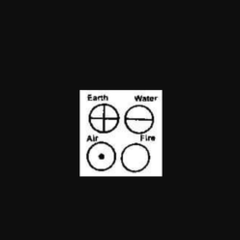








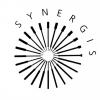
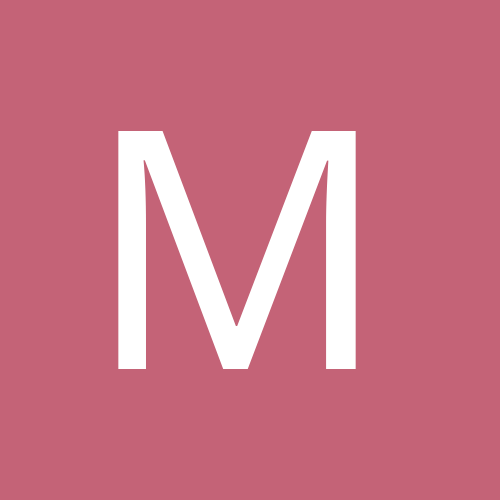


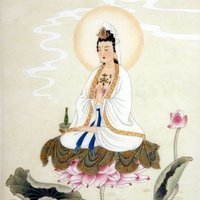
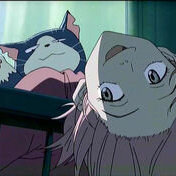
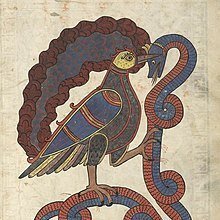
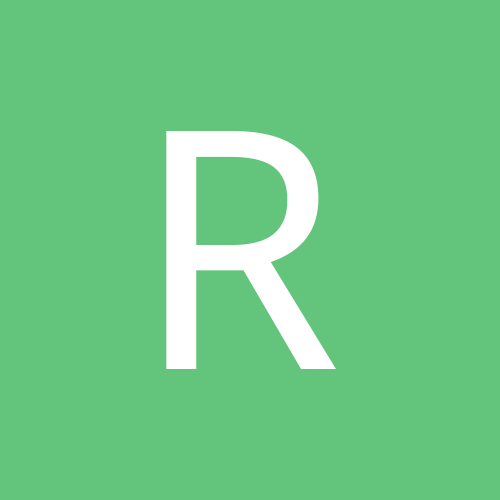

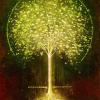

.thumb.jpeg.611f83584012f7d113169af2a4fd9318.jpeg)



